List of governors of Bombay Presidency

Until the 18th century,
During British rule, a Governor was the chief administrative and political officer of Bombay. The executive Government of the Presidency was administered by the Governor. He had the same power and right in the Presidency as the Governor-General of India, and observed the same order and course in their proceedings.[4] Governors of Bombay and Madras Presidencies, who were appointed by the British Crown, were the most important officials after the Viceroy.[5] Bombay Castle was the official residence of the governor of Bombay until the 1770s, when it was moved to Parel; a century later, in 1883, it was moved to Malabar Hill.[6][7]
Royal governors (1662–1668)
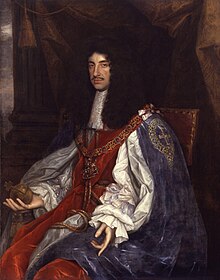
The marriage treaty of
| No. | Name | Assumed office | Left office | Years in office | Remarks[a] |
|---|---|---|---|---|---|
| 1 | Abraham Shipman | 19 March 1662 | October 1664 | 2 | |
| 2 | Humphrey Cooke | February 1665 | 5 November 1666 | 1 | Acting |
| 3 | Gervase Lucas | 5 November 1666 | 21 May 1667 | 1 | |
| 4 | Henry Gary
|
22 May 1667 | 23 September 1668 | 1 | Acting |
Sources: The India List and India Office List[11] and Origin of Bombay[12]
Company governors (1668–1862)
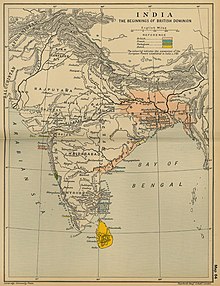


On 21 September 1668, the
In 1687, the Company shifted its main holdings from Surat to Bombay, which had become the administrative centre of all the west coast settlements.
During the 18th century, the
The framework of the Presidency formed between 1803 and 1827. The districts of Ahmadabad, Bharuch, and Kaira in Gujarat were taken over by the Bombay Government in 1805 and enlarged in 1818. The numerous small states of
| No. | Name | Portrait | Assumed office | Left office | Years in office | Remarks[a] |
|---|---|---|---|---|---|---|
| 1 | George Oxenden | 
|
23 September 1668 | 14 July 1669 | 1 | |
| 2 | Gerald Aungier | 14 July 1669 | 30 June 1677 | 8 | ||
| 3 | Henry Oxenden | 
|
30 June 1677 | 27 October 1681 | 4 | |
| 4 | John Child | 27 October 1681 | 4 February 1690 | 8 | ||
| 5 | Richard Keigwin[b]
|
27 December 1683 | 19 November 1684 | 1 | Unofficial | |
| 6 | Bartholomew Harris | 4 February 1690 | 10 May 1694 | 4 | ||
| 7 | Daniel Annesley | 10 May 1694 | 17 May 1694 | Acting | ||
| 8 | John Gayer | 17 May 1694 | November 1704 | 10 | ||
| 9 | Nicholas Waite
|
November 1704 | September 1708 | 4 | ||
| 10 | William Aislabie | September 1708 | 11 October 1715 | 7 | ||
| 11 | Stephen Strutt | 11 October 1715 | 26 December 1715 | Acting | ||
| 12 | Charles Boone | 26 December 1715 | 9 January 1722 | 7 | ||
| 13 | William Phipps | 9 January 1722 | 10 January 1729 | 7 | ||
| 14 | Robert Cowan | 10 January 1729 | 22 September 1734 | 5 | ||
| 15 | John Horne | 22 September 1734 | 7 April 1739 | 5 | ||
| 16 | Stephen Law | 7 April 1739 | 15 November 1742 | 3 | ||
| 17 | John Geekie | 15 November 1742 | 26 November 1742 | Acting | ||
| 18 | William Wake | 26 November 1742 | 17 November 1750 | 8 | ||
| 19 | Richard Bourchier | 17 November 1750 | 1760 | 10 | ||
| 20 | Sir John Holkell
|
1760 | 28 February 1760 | Acting | ||
| 21 | Charles Crommelin | 28 February 1760 | 27 January 1767 | 7 | ||
| 22 | Thomas Hodges | 27 January 1767 | 23 February 1771 | 4 | ||
| 23 | William Hornby | 26 February 1771 | 1 January 1784 | 13 | ||
| 24 | Rawson Hart Boddam | 1 January 1784 | 9 January 1788 | 4 | ||
| 25 | Andrew Ramsay | 9 January 1788 | 6 September 1788 | 1 | Acting | |
| 26 | William Medows | 
|
6 September 1788 | 21 January 1790 | 2 | |
| 27 | Robert Abercromby
|
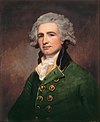
|
21 January 1790 | 26 November 1792 | 2 | |
| 28 | George Dick | 26 November 1792 | 9 November 1795 | 3 | Acting | |
| 29 | John Griffith | 9 November 1795 | 27 December 1795 | Acting | ||
| 30 | Jonathan Duncan | 
|
27 December 1795 | 11 August 1811 | 16 | |
| 31 | George Brown | 11 August 1811 | 12 August 1812 | 1 | Acting | |
| 32 | Sir Evan Nepean, Bt. | 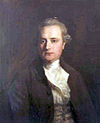
|
12 August 1812 | 1 November 1819 | 7 | |
| 33 | Mountstuart Elphinstone | 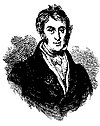
|
1 November 1819 | 1 November 1827 | 8 | |
| 34 | Sir John Malcolm | 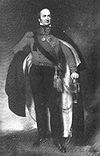
|
1 November 1827 | 1 December 1830 | 3 | |
| 35 | Sir Thomas Sidney Beckwith
|
1 December 1830 | 15 January 1831 | 1 | Acting | |
| 36 | John Romer | 17 January 1831 | 21 March 1831 | Acting | ||
| 37 | John FitzGibbon, 2nd Earl of Clare | 
|
21 March 1831 | 17 March 1835 | 4 | |
| 38 | Sir Robert Grant | 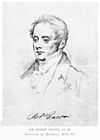
|
17 March 1835 | 9 July 1838 | 3 | |
| 39 | James Farish | 11 July 1838 | 31 May 1839 | 1 | Acting | |
| 40 | James Rivett Carnac | 
|
31 May 1839 | 27 April 1841 | 2 | |
| 41 | William Hay Macnaghten
|

|
27 April 1841 | 28 April 1841 | Acting | |
| 42 | George William Anderson | 28 April 1841 | 9 June 1842 | 1 | Acting | |
| 43 | George Arthur
|

|
9 June 1842 | 6 August 1846 | 4 | |
| 44 | Lestock Robert Reid | 6 August 1846 | 23 January 1847 | 1 | Acting | |
| 45 | George Russell Clerk | 23 January 1847 | 1 May 1848 | 1 | Acting | |
| 46 | Lucius Cary (Lord Falkland) | 
|
1 May 1848 | 26 December 1853 | 5 | |
| 47 | John Elphinstone (Lord Elphinstone) | 
|
26 December 1853 | 11 May 1860 | 7 | |
| 48 | George Russell Clerk | 11 May 1860 | 24 April 1862 | 2 | Acting |
Sources: The India List and India Office List[11][17][31] and Oxford Dictionary of National Biography[27]
Deputy Governors of Bombay (1668–1690)
The transfer of the headquarters of the company's power to Bombay largely eliminated the need for a
| No. | Name | Assumed office | Left office | Years in office |
|---|---|---|---|---|
| 1 | Henry Young
|
1668 | 13 November 1669 | 2 |
| 2 | Matthew Gray | 1670 | 1670 | |
| 3 | Phillip Gifford | 1670 | 1676 | 6 |
| 4 | Henry Oxenden | 1676 | 1682 | 6 |
| 5 | Charles Ward[b]
|
1682 | 1683 | 1 |
| 6 | Charles Zinzan | 1684 | 1686 | 2 |
| 7 | John Wyborne | 1686 | 1688 | 2 |
| 8 | John Vaux | 1689 | 1689 | |
| 9 | George Cooke | 1689 | 1690 | 1 |
| 10 | George Weldon | 1690 | 1690 | |
| 11 | John Burniston
|
1690 | 1704 | 14 |
Source: Origin of Bombay[32]
Crown governors (1862–1948)



Following the
Laws were made for British India by a Legislative Council under the
The Governor would consult the Executive Council in the exercise of all his functions (except on trivial or urgent matters or where the public interest made it undesirable). He would not be required to consult in cases where he was specifically authorised by the Constitution to act in his discretion or on the advice of, or after consultation with, some other person or authority. He would in general act in accordance with the advice of the Executive Council but could act against such advice, where he considered it necessary in the interests of the public order, public faith or good government; in such cases he would be required to seek approval of the Secretary of State for India.[40]
The Governor didn't have the right to make or suspend any laws, unless in cases of urgent necessity, he could do it with the consent of the Governor-General of India. He didn't have the power of creating a new office, or granting any salary, gratuity, or allowance, without the sanction of the Governor-General of India.[4] The Governor-General had full power to superintend and control the Governor in all points relating to the civil or military administration of the Presidency, and the Governor had to obey the orders and instructions of the Governor-General in all cases.[41] The Governors could propose to the Governor-General drafts of any laws which they thought expedient, together with their reasons for the same; and the Governor-General communicated the resolutions to the Governor, after considering the reasons.[42] The Governors regularly transmitted to the Governor-General true copies of all orders and acts of their governments, and also advice of all matters which they felt to be communicated to the Governor-General.[43] The powers of the Governors were not suspended when the Governor-General visited the Presidency.[44] The departure of the Governor from India with intent to return to Europe was deemed to be a resignation from his office. Alternately, the Governor could resign by declaring it in writing and delivering it to the secretary for the public department of the Presidency.[45]
In 1906, Bombay Presidency had four commissionerships and twenty-six districts with Bombay City as its capital. The four commissionerships were the northern province of
| No. | Name | Portrait | Assumed office | Left office | Years in office | Remarks[a] |
|---|---|---|---|---|---|---|
| 1 | Sir Bartle Frere | 
|
24 April 1862 | 6 March 1867 | 5 | |
| 2 | Sir William Vesey-FitzGerald
|
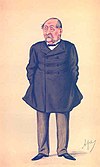
|
6 March 1867 | 6 May 1872 | 5 | |
| 3 | Sir Philip Wodehouse | 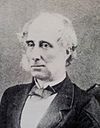
|
6 May 1872 | 30 April 1877 | 5 | |
| 4 | Sir Richard Temple, Bt. | 
|
30 April 1877 | 13 March 1880 | 3 | |
| 5 | Lionel Robert Ashburner | 13 March 1880 | 28 April 1880 | Acting | ||
| 6 | Sir James Fergusson, Bt. | 
|
28 April 1880 | 27 March 1885 | 5 | |
| 7 | James Braithwaite Peile
|
27 March 1885 | 30 March 1885 | Acting | ||
| 8 | The Lord Reay | 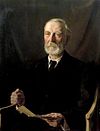
|
30 March 1885 | 12 April 1890 | 5 | |
| 9 | The Lord Harris | 
|
27 March 1890 | 16 February 1895 | 5 | |
| 10 | Herbert Mills Birdwood | 
|
16 February 1895 | 18 February 1895 | Acting | |
| 11 | The Lord Sandhurst | 
|
18 February 1895 | 17 February 1900 | 5 | |
| 12 | The Lord Northcote | 
|
17 February 1900 | 5 September 1903 | 3 | |
| 13 | James Monteath
|
5 September 1903 | 12 December 1903 | Acting | ||
| 14 | The Lord Lamington | 
|
12 December 1903 | 27 July 1907 | 4 | |
| 15 | John William Muir Mackenzie
|

|
27 July 1907 | 18 October 1907 | Acting | |
| 16 | Sir George Sydenham Clarke | 
|
18 October 1907 | 5 April 1913 | 6 | |
| 17 | The Lord Willingdon | 
|
5 April 1913 | 16 December 1918 | 5 | |
| 18 | Sir George Lloyd | 
|
16 December 1918 | 8 December 1923 | 5 | |
| 19 | Maurice Hayward
|
8 December 1923 | 10 December 1923 | Acting | ||
| 20 | Sir Leslie Orme Wilson
|

|
10 December 1923 | 20 March 1926 | 3 | |
| 21 | Sir Henry Staveley Lawrence | 20 March 1926 | 8 December 1928 | 2 | Acting | |
| 22 | Sir Frederick Sykes | 
|
9 December 1928 | 9 December 1933 | 5 | |
| 23 | John Ernest Buttery Hotson[e]
|
1931 | 1931 | Acting | ||
| 24 | The Lord Brabourne | 
|
9 December 1933 | 30 May 1937 | 4 | |
| 25 | Robert Duncan Bell | 30 May 1937 | 18 September 1937 | Acting | ||
| 26 | The Earl of Scarbrough
|
18 September 1937 | 24 March 1943 | 6 | ||
| 27 | The Sir Girja Shankar Bajpai | 20 September 1940 | 20 March 1942 | 2 | A temporary appointment for the functioning of the MNGFTDA Trust as a Governorv of Bombay for Trust - NGO) was made under the direction of the Earl of Scarbrough (governor of bombay) appointment. | |
| 28 | Sir John Colville | 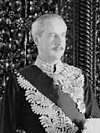
|
24 March 1943 | 5 January 1948 | 5 |
Sources:
Chief Ministers of Bombay (1937–1947)
Source: Oxford Dictionary of National Biography[27]
Post independence (1948–1960)
After
| No. | Name | Portrait | Assumed office | Left office | Years in Office |
|---|---|---|---|---|---|
| 1 | Raja Sir Maharaj Singh | 
|
6 January 1948 | 30 May 1952 | 4 |
| 2 | Sir Girija Shankar Bajpai | 
|
30 May 1952 | 5 December 1954 | 2 |
| 3 | Harekrushna Mahatab | 
|
2 March 1955 | 14 October 1956 | 1 |
| 4 | Sri Prakasa[f] | 
|
10 December 1956 | 16 April 1962 | 6 |
Sources:
See also
- List of governors of Maharashtra
- Governors of India
- History of Mumbai
Notes
a
b
c
d
e
f ^ Sri Prakasa was Governor of Bombay from 10 December 1956 to 1 May 1960 and Governor of Maharashtra thereafter from 1 May 1960 to 16 April 1962.
Citations
- ^ "Bombay: History of a City". The British Library. Retrieved 8 November 2008.
- ^ a b c d The Imperial Gazetteer of India, v. 8, p. 266
- ^ a b c Dupont 2001, p. 563
- ^ a b The Law-dictionary, Explaining the Rise, Progress, and Present State of the British Law 1835, p. 364, § 59
- ISBN 978-0-543-91758-4, retrieved 25 December 2008
- Governor of Maharashtra. Archived from the originalon 23 September 2008. Retrieved 7 November 2008.
- Governor of Maharashtra. Archived from the originalon 10 February 2009. Retrieved 5 January 2009.
- . Retrieved on 9 November 2008.
- ^ "Catherine of Bragança (1638–1705)". BBC. Retrieved 5 November 2008.
- ^ Thana District Gazetteer 1986, Portuguese (1500–1670)
- ^ a b c d e The India List and India Office List 1905, p. 125
- ^ Da Cunha 1993, p. 323
- ISBN 978-0-7661-8695-8, retrieved 18 August 2008
- ^ a b c d Dupont 2001, p. 564
- ISBN 978-0-521-04544-5, retrieved 7 January 2009
- ^ Hughes, William (1863), The geography of British history, Longman, Green, Longman, Roberts, & Green, p. 227, retrieved 15 January 2009
- ^ a b The India List and India Office List 1905, p. 126
- ^ Thana District Gazetteer 1986, The Marathas
- ^ Ratnagiri and Savantvadi District Gazetteer 1996, Justice
- ^ Thana District Gazetteer 1986, Acquisition, Changes, and Staff (Acquisition, 1774–1817
- ISBN 978-1-57003-544-9, retrieved 15 January 2009
- ^ Farooqui 2005, p. 18
- ISBN 978-81-313-0034-3
- ^ Ahmadnagar District Gazetteer 1976, Maratha Period
- ^ Cox 1887, pp. 257–261
- ^ a b c d Dodwell, p. 59
- ^ a b c d e "Colonial administrators and post-independence leaders in India (1616–2000)". Oxford Dictionary of National Biography (online ed.). Oxford University Press. (Subscription or UK public library membership required.)
- ^ Cox 1887, pp. 320, 321
- ^ a b "History of Sindh". Government of Sindh. Archived from the original on 27 December 2008. Retrieved 7 January 2009.
- ^ Cox 1887, p. 195
- ^ The India List and India Office List 1905, p. 127
- ^ Da Cunha 1993, p. 324
- ^ "History of Mumbai". Department of Theoretical Physics (Tata Institute of Fundamental Research). 17 November 1999. Retrieved 23 December 2008.
- ^ "Sir Henry Bartle Edward Frere". Department of Theoretical Physics (Tata Institute of Fundamental Research). 4 February 1999. Retrieved 23 December 2008.
- ^ a b Dupont 2001, p. 483
- ^ The Imperial Gazetteer of India, v. 4, p. 59
- ^ The Imperial Gazetteer of India, v. 4, p. 60
- ISBN 978-1-4021-8555-7, retrieved 12 January 2009
- ^ ISBN 978-81-206-1581-6, retrieved 13 January 2009
- ISBN 978-0-313-29072-5, retrieved 13 January 2009
- ^ The Law-dictionary, Explaining the Rise, Progress, and Present State of the British Law 1835, p. 365, § 65
- ^ The Law-dictionary, Explaining the Rise, Progress, and Present State of the British Law 1835, p. 365, § 66
- ^ The Law-dictionary, Explaining the Rise, Progress, and Present State of the British Law 1835, p. 365, § 68
- ^ The Law-dictionary, Explaining the Rise, Progress, and Present State of the British Law 1835, p. 365, § 67
- ^ The Law-dictionary, Explaining the Rise, Progress, and Present State of the British Law 1835, p. 365, § 79
- ISBN 978-81-7991-102-0, retrieved 8 November 2008)
{{citation}}: CS1 maint: multiple names: authors list (link - ^ The Imperial Gazetteer of India, v. 8, p. 267
- ^ Governor of Maharashtra. Archived from the originalon 6 February 2009. Retrieved 23 December 2008.
- ISBN 978-81-250-3018-8, retrieved 8 January 2009
- ^ "States Reorganization Act 1956". Commonwealth Legal Information Institute. Archived from the original on 16 May 2008. Retrieved 1 July 2008.
- ^ "The battle for Bombay". The Hindu. 13 April 2003. Archived from the original on 14 May 2005. Retrieved 12 November 2008.
{{cite news}}: CS1 maint: unfit URL (link) - ^ "Samyukta Maharashtra". Government of Maharashtra. Archived from the original on 6 October 2008. Retrieved 12 November 2008.
- ^ "Sons of soil: born, reborn". Indian Express Newspapers (Mumbai) Ltd. 6 February 2008. Retrieved on 12 November 2008.
- ^ "Gujarat". Government of India. Retrieved 16 January 2008.
- ^ "Maharashtra". Government of India. Retrieved 16 January 2008.
- ^ "List of the Governors of Bombay", Greater Bombay District Gazetteer, Maharashtra State Gazetteers, vol. I, Government of Maharashtra, 1986, archived from the original on 6 September 2008, retrieved 13 August 2008
- ^ The Law-dictionary, Explaining the Rise, Progress, and Present State of the British Law 1835, p. 364, § 63
- ISBN 978-0-313-32280-8, retrieved 7 January 2009
- ^ "Monday, Aug. 03, 1931". Time. 3 August 1931. Archived from the original on 2 November 2012. Retrieved 12 January 2009.
- ^ Bulletin of International News, vol. 8, Royal Institute of International Affairs, 1931–1932, p. 86.
References
- Ahmadnagar District Gazetteer, The Gazetteer Departments (Government of Maharashtra), 1976, archived from the original on 10 April 2009, retrieved 15 January 2009
- Calcutta Magazine and Monthly Register, vol. 33–36, S. Smith & Co, 1832, retrieved 7 November 2008
- Cox, Edmund Charles (1887), A short history of the Bombay Presidency, Thacker and Company, retrieved 16 January 2009
- ISBN 978-81-206-0815-3, retrieved 4 January 2009
- Dodwell, H.H. (1922), The Cambridge History of India, Cambridge University Press Archive, retrieved 16 January 2009
- Dupont, Jerry (2001), The Common Law Abroad: Constitutional and Legal Legacy of the British Empire, Wm. S. Hein Publishing, ISBN 978-0-8377-3125-4, retrieved 6 January 2009
- Farooqui, Amar (2005), Smuggling as Subversion: Colonialism, Indian Merchants, and the Politics of Opium, 1790–1843, Lexington Books, ISBN 978-0-7391-0886-4, retrieved 16 January 2009
- Great Britain India Office (1905), The India List and India Office List, vol. I, Harrison, retrieved 9 October 2008
- Hunter, William Wilson; James Sutherland Cotton, Richard Burn, William Stevenson Meyer, Great Britain India Office (1909), The Imperial Gazetteer of India, Clarendon Press, retrieved 7 January 2009
{{citation}}: CS1 maint: multiple names: authors list (link) - Naravane, M.S. (2006), Battles of the Honourable East India Company, APH Publishing, pp. 80–1, ISBN 978-81-313-0034-3
- Ratnagiri and Savantvadi District Gazetteer, vol. X, The Gazetteers Department (Government of Maharashtra), 1996 [1880], retrieved 15 January 2009
- Thana District Gazetteer, Gazetteers of the Bombay Presidency, vol. XIII, The Gazetteer Departments (Government of Maharashtra), 1986 [1882], retrieved 7 January 2009
- Thomas Edlyne Tomlins, Thomas Colpitts Granger (1835), The Law-dictionary, Explaining the Rise, Progress, and Present State of the British Law:: Defining and Interpreting the Terms Or Words of Art, and Comprising Also Copious Information on the Subjects of Trade and Government, vol. 1, J. Clarke, J. and W. T. Clarke, Longman, Rees, Orme, Brown, Green, and Longman, pp. M1 364, M1 365, retrieved 16 January 2009
External links
- Governors of Bombay from rootsweb
- Provinces of British India (Bombay) from WorldStatesmen.org


